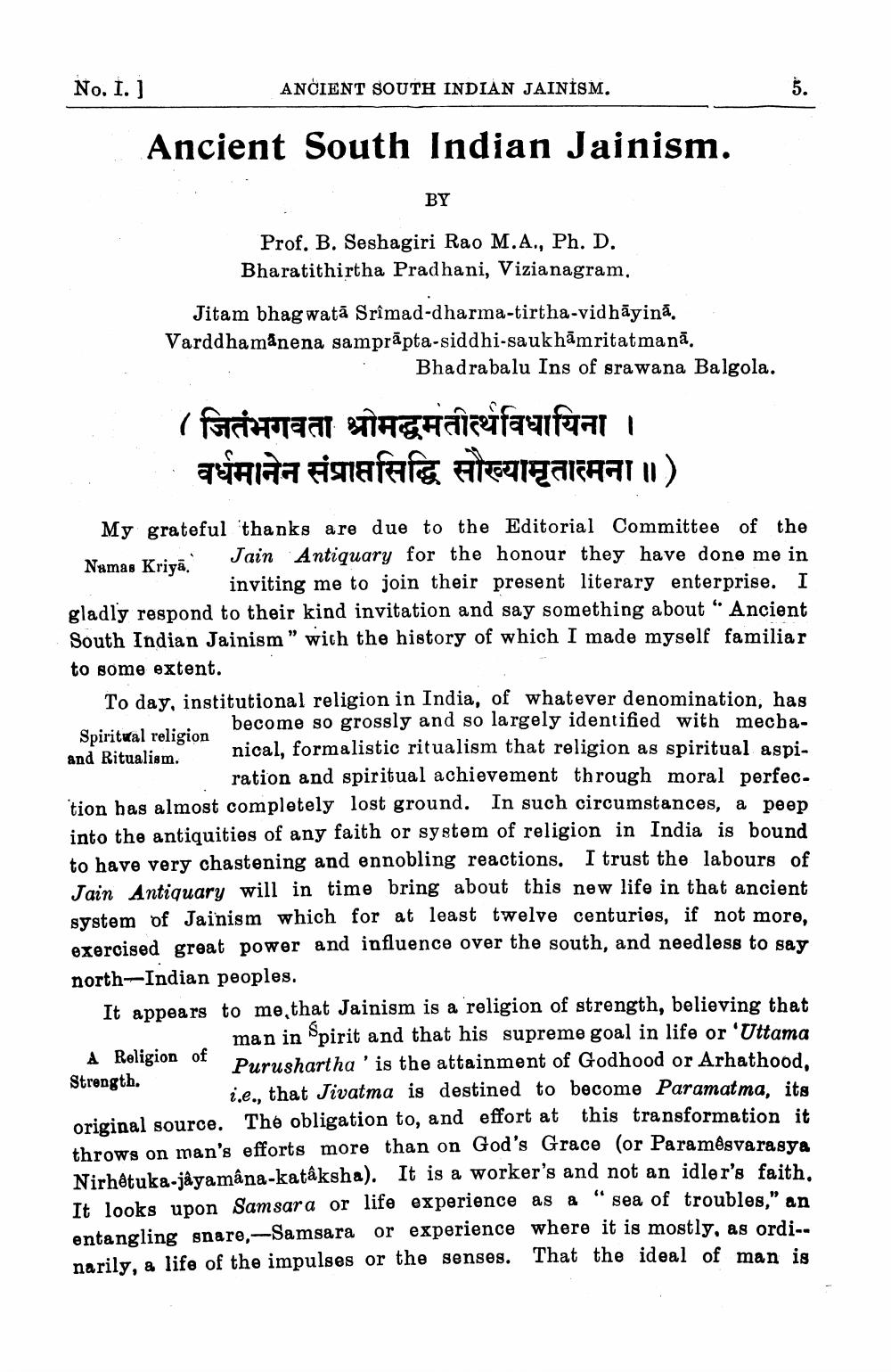________________
No. I. ]
ANCIENT SOUTH INDIAN JAINISM.
Ancient South Indian Jainism.
BY
Prof. B. Seshagiri Rao M.A., Ph. D. Bharatithirtha Pradhani, Vizianagram.
Jitam bhagwata Srîmad-dharma-tirtha-vidhayinā. Varddhamanena samprapta-siddhi-saukhāmritatmanā. Bhadrabalu Ins of srawana Balgola.
( जितं भगवता श्रीमद्धमतीत्र्त्यविधायिना । admiàa eimafafs Aranyakazi 11 )
A Religion of Strength.
5.
My grateful thanks are due to the Editorial Committee of the Jain Antiquary for the honour they have done me in Namas Kriya. inviting me to join their present literary enterprise. I gladly respond to their kind invitation and say something about "Ancient South Indian Jainism" with the history of which I made myself familiar to some extent.
Spiritual religion and Ritualism.
To day, institutional religion in India, of whatever denomination, has become so grossly and so largely identified with mechanical, formalistic ritualism that religion as spiritual aspiration and spiritual achievement through moral perfection has almost completely lost ground. In such circumstances, a peep into the antiquities of any faith or system of religion in India is bound to have very chastening and ennobling reactions. I trust the labours of Jain Antiquary will in time bring about this new life in that ancient system of Jainism which for at least twelve centuries, if not more, exercised great power and influence over the south, and needless to say north-Indian peoples.
It appears to me that Jainism is a religion of strength, believing that man in Spirit and that his supreme goal in life or 'Uttama Purushartha' is the attainment of Godhood or Arhathood, i.e., that Jivatma is destined to become Paramatma, its original source. The obligation to, and effort at this transformation it throws on man's efforts more than on God's Grace (or Paramêsvarasya Nirhêtuka-jâyamâna-kataksha). It is a worker's and not an idler's faith.
64
sea of troubles," an It looks upon Samsara or life experience as a or experience where it is mostly, as ordi-entangling snare,-Samsara That the ideal of man is narily, a life of the impulses or the senses.




